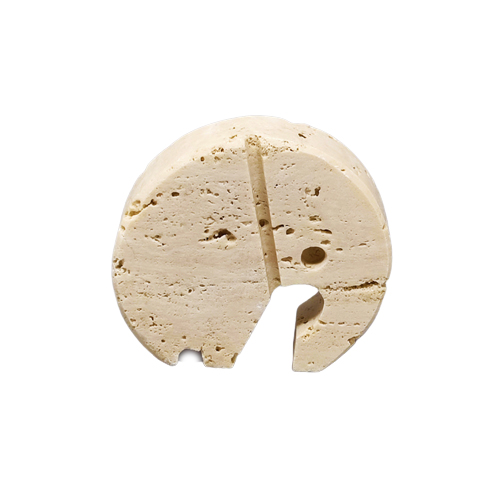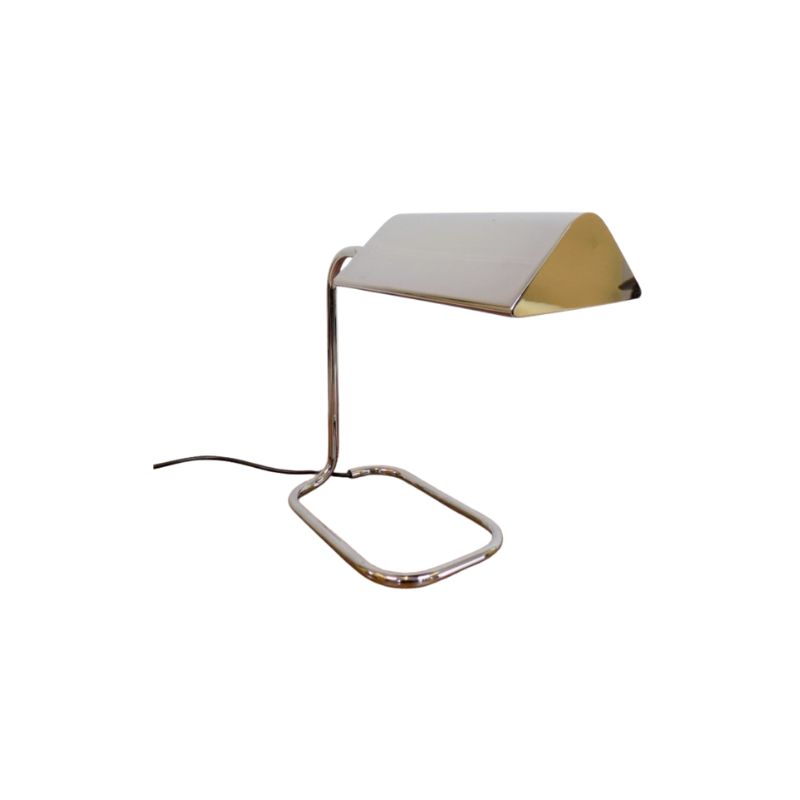Koen...
Short Form for Most Readers:
I was careful to point out at the end of the post your comment appears directed toward that it would be wrong to view these cases as equivalent. To wit, Weimar's drift into authoritarian state-corporate fascism was vastly greater than USA's drift to authoritarian state-corporate fascism witnessed so far since 9/11. But both countries (Germany and USA) decisively justified their varying drifts into authoritarian state-corporate fascism based on arguments of economic and political instabilities and traumatic terrorist events (the Reichstag fire in Germany, 9/11 in USA). Further, both states blamed ideological movements (communism for Germany, radical Arab fundamentalism for USA) overtly hostile to the oligarchies of each country for making it necessary for them to drift toward authoritarian state-corporate fascism. It is this similarity of triggers, of justifications, and of responses by drift to authoritarian state-corporate fascisms, though to greatly varying degrees and kinds, that makes my analogy IMHO valid and informative, not misleading.
I will perhaps post an achingly long version explaining the above in the future, if you require it. 🙂
Dear SCS
Instead of posting short slogans, could you just try to share with us why you think that "this is getting ridiculous". We may all learn something.
Dear DC,
I did read the warning at the end of your contribution, but I read it as a warning about the difference in scale. Of course I agree with the obvious difference in scale, but that is not my point. My point was about making choices and how easy or difficult it is to make the right choice. It seems to me that the choices designers have to make are not as black and white as your example suggests. Secondly I wanted to point out that it is as difficult to learn from recent history as it is difficult to learn from history that is too far behind us. In the first months after Canada and England (chronological order) declared war to Germany following the invasion of Poland, the German embassy in Washington could successfully organise found raising diners in New York. I am sure that the people that attended might have regretted these generous contributions to Germany five years later. My point is simply that this difference shows that choices become easier when more of the consequences of a particular choice are known. Right now designers and architects are asked to make choices about problems of which the consequences are only partially known. We might think that a higher population density in the cities is a good thing to do and to plan for?but is it really? As consumers we are asked to collect the garbage selectively in order to recycle it, but are we so sure that?s the right thing to do? When ethanol and bio-diesel came on the market we all thought it was a good thing, until food prices went up to a point where food producing developing countries could not afford to keep their own production. Now the former united camp on bio-fuels is divided in pro's and con's.
I am aware of the fact that I have taken your topic down a few notches from a very general perspective to an array of smaller problems. I am only doing it to point out that the choices are not always easy, even for those who understand the issues and are willing to lift their nooses from the grindstone for a moment to think about what they are doing.
.
To be short, I have to get back to the grindstone...I think it depends what you are doing at the grindstone that is more important, economic and political issues are a major consideration, I have no argument there at all but I think the intellectual circumlocutions can be avoided by simply making well thought decisions from the begining, starting of course with 'should it be made?'
.
I don't know about that but he did have some very odd ideas about architecture, I think in his own residences he demanded that the cielings all be about 7 metres high.
There is a hilarious little book called 'Dictators Homes' that you can buy, lots of leopard print and gold, perhaps like Henry James they can stand a great deal of gilt 🙂
Design and politcs, not quiet the direction this was meant to go in I think but perhaps we could ask Robert Mugabe what he thinks of Eames chairs.
Dear Koen,
With all due...
Dear Koen,
With all due respect, these discussions are pointless and elitits drivel. I do not care about oligarchies, weapons of mass destruction, social upheavals, depressed artists, etc. when it comes to product design. Forgive my severe lack of intellectualism compared to you and dcwilson...I simply desire to engage in conversation about the DESIGN process...how ideas come to the designer, how the designer sketches ideas, how the sketches are transferred into working plans, how the plans become prototypes, how the prototypes are proposed to a manufacturer, how the manufacturer works with the designer to refine the designs into a feasible product. And whether or not the end result meets my, or anyone elses, satisfaction.
Forgive me for the desire to learn the design process instead of the politics influencing design. To me, "Design" is merely a good idea, not a social statement. I am tired of social staements, just design a good chair or toaster, for God's sake and let it stand on its own merit.
I agree that it is difficult to make the right choices...
But we cannot and should not hold out hope for right choices ever to become absolutely certainly clear.
It was not absolutely certain that FDR should ignore the signal intelligence that the Japanese fleet was going to attack Pearl Harbor, regardless of what motive one attaches to the decision to ignore the signals and to avoid informing Admiral Kimmel in command of Pearl Harbor entirely. Some say FDR was trying to contrive a war with Japan to justify a war with its ally, Nazi Germany. Some say it was just an error in judgement about where they thought the Japanese would in fact attack. But regardless of his intent, his logical play was not absolutely certain and clear.
It was not absolutely certain that Eisenhower should have invaded Normandy on June 6, 1944.
It was not absolutely certain that JFK should have blockaded Cuba in 1962.
Uncertainty and errors in judgement are made whether one is trying to do the good thing, or the evil things, or trying to be a rational pragmatist pursuing either, or just self interest.
But when unquestionable and unconscionable evil occurs, the attempt by all citizens, including designers, must start on the making of humane choices in order to correct the situation, knowing full well that mistakes will be made.
continued
Citizens, and designers, have to act when the oligarchy of a state endorses and enables situational suspension of constitutional process, replacing a constitutionally bound president with a unitary president explicitly above the law, running torture prisons, invading states based on lies, degrading infrastructure in foreign states to the point that over a million persons have died in Iraq as a result, occupies states indefinitely using death squads and mercenaries operating outside the rules of warfare that armies must obey, exporting the employment infrastructure of USA for a large segment of its population to exploit peonage and slave labor elsewhere, suspending of habeaus corpus situationally, effectively subordinating a republic to an undemocratic private central bank, letting the central bank cease acting as a financial institution and start acting as an authoritarian architect of industrial party unconstrained by either market processes, or democratic processes,
And when an oligarchy of a state like USA acts in the above ways in conjunction with the oligarchy of Great Britain, and with the indirect support of oligarchies from states like Canada, Australia, New Zealand and others, citizens in those other states must begin to make such choices, also.
The litmus test for moral choice and action is the manifesting of law breaking and evil on a scale we have already witnessed. The litmus test is not whether the correct choices and corrections actions are indisputable.
Persons in Germany and in many countries around the world knew for years that what the Nazis were doing in Germany and in Europe, and what the Japanese were doing in Manchuria and elsewhere was unlawful and evil. For too long they allowed themselves to be paralysed into no action, or tentative action, because the path to stop the German's and Japanese's misbehaviors was not crystal clear--the winning play was not immediately recognizable.
One must right wrongs and fix evil by beginning, not by waiting until the answer is obvious.
Each citizen must begin as he/she can best understand to do. Each designer, too. It is from citizens and designers cummulative pursuits of justice, not from a silver bullet of justice, that will slowly begin to rectify the situation.
Again, I am not equating USA to Nazi, Germany here. They are vastly different in scale ande extent of wrong doing, and they may also differ over the degrees of vagueness there are about wha can sensbly be done.
But there is no doubt in my mind, any way that remedy is increasingly over due. And the remedy ought extend to the economic and political, as well as be pursued through these venues, also.
"If not you, who? If...
"If not you, who? If not now, when? "
-unknown
Asking questions and exploring is the path to answering them. It is not drivel to those seeking solutions or gaining greater understanding.
SCS (and lesser extent, Heath too)...you can make a box...but I ask you, what does that box represent. It isn't merely a box you know, regardless of how simple or complex it is. The intention may be a mere box, but the unintentional communication says otherwise.
In terms of design and politics... Compare designs from post WW2 eastern Europe and Allied countries (lets include Japan due to post war change), there are clear differences. Allied countries, were brimming with optimism and a sense of direction. This I think is reflected in the modern but decorative approaches in design...it's democratic, with endless variety. In Europe...designs were considerably more somber, austere and utilitarian. When I think of eastern European designs from this period...I think of Dieter Rams, whose simple beauty wield powerful statements about that era....regardless of intention.
A designer need not be merely a tool. Nor should they be considered as such. A designer has a voice that's reflected in their work..like a writer can use the pen for change, however good or bad. A designer can help direct change and improvements or merely maintain a status quo.
The HUGE campaign several years ago revolving around compact fluorescent light bulbs ( CFL's) reflects the changing global political perspective and directives. For me, being someone already with deep environmental convictions....this little swirl bulb really annoyed me! Somehow this little bulb was to change everything....it was the answer to our environmental crises.
In a greater sense it has. It wasn't the actual end result that produce change...as in reduced carbon footprint by way of longer lasting. It was the greater representation of changing how we live. It represented that eco-conscious need not be granola. That eco-technology should be relevant to everything...even a lightbulb. It was yesterday, IS TODAY and ever improving into tomorrow. CFL's signify that eco-conscious is for everyone, and small changes can produce lasting results. Design and politics at work!
barrympls...
The point is: no oligarchy can impose its will on a complex society without the cooperation of its professions.
When the professions of a society cease to cooperate and enable lawless adventures of oligarchies, the lawless adventures slowly, inexorably become unfeasible to continue.
Design is one of those professions.
Having read dcwilson's...
Having read dcwilson's latest self aggandizing missives I must say I'm rather pissed off at having been criticised for not giving his pompous drivel more respect or attention previously. Am I really supposed to take some demented comparision between Nazi Gernmany and post 9-11 USA seriously? An argument made with obviously very little understanding of how the first society came about in a country whose history and values and most of all lack of democratic tradition were poles apart from those of 21st century USA? So designers in Nazi Germany stopped making all the things that need designing - like window latches, and kettles and typewriters and garden gates - to concentrate on brown uniforms and V" rockets? And how do you equate Le Corbusier with Albert Camus in any sensible way other than that they're two people you've heard of even though their outlooks, backgrounds, experiences, nationalities etc etc etc were completely different? I think he only posts this nonsense here because its the only place generous enough not to delete it within seconds of it being posted. I could go on - but have no more space!
If you need any help, please contact us at – info@designaddict.com









